I thought it would be good for people to know the general story of why I use the title “doctor” professionally. Many people who have PhDs in literature do not go by this title. Creative writers who have PhDs don’t use it much either. To do this, I have to do a bit backtracking in terms of my educational journey.
PhD Journey
I started my PhD by default. I was supposed to be hired to teach in an MFA program. The head of the division had said this based on my publication credits and awards and promised me the job. The chair of the department vetoed this as I did not have a book out. As a carrot, the division head offered the chance to pursue my PhD, to be the first student from this program. He promised me money, full ride, money for overseas travel, and a professor imported from the West. I did my PhD in Hong Kong.
It was a win-win in the end. As a candidate I didn’t require a lot of ramp up as I was older, already teaching, and had basic writing chops down. I had cut my way already through most of the literary canon as I’d been writing for a long time and so wouldn’t be grinding it out in that way. They needed seasoned teachers to teach undergraduates. I had a US passport and in Asia this carries more weight than those from many Asian countries. Still, I had an Asian face, passing as I did, in the Middle Kingdom, which subsequently became the title of a manuscript kicking around: Passing in the Middle Kingdom. They needed a first student who would be able to work with a new single faculty hire and a student who would complete the program. I didn’t want to go to school anymore. But I mulled it over for a few days and accepted. It’s now some period of time, so I feel I can be rather candid about most things like my schooling.
Schooling History
As a Korean American, even if I’m 4 generations in on one side and call Hawai’i a type of ancestral home thanks to Christianity, pineapple plantations and general colonial expansionism, I grew up in a heavily Confucian household thanks to my father who embodied, back in the day, all elements of old style Confucian elitism. There were yangban. There were sangnam. We were yangban. Dad called me sangnam if I neglected to take off my shoes in the house, longing as I did as a child, to fit in with my peers.
I was in my late 20s before I understood how people walked around with shoes in their house. A raconteur used to tell me stories about traveling and parties at Peggy Guggenheim’s back when I was working as a film producer’s assistant. He explained you take off the outside shoes and then you wear slippers in the house. But you could also wear your shoes around the house and then have different kinds of indoor shoes so basically, you’re just in shoes the entire time you are in the house. It was enlightening, but I thought to myself, very uncomfortable: who could keep track of all of these shoes?
I digress…
To my dad, there was Kyung Gi High School and Seoul National. There were MDs and PhDs and that was that. Period. JDs were also okay, but the only time I ever heard my Korean speaking grandfather comment was when I said I wanted to be a lawyer and he replied shaking his head: “Wheeler Dealer”. So much for law in the eyes of the Ancient Yoo Clan. My father was an MD at age 24 and the sole winner in his nation of a scholarship to the PhD program of his choice. He got his PhD in biophysics at U.C. Berkeley. The clan was exceedingly scholarly and this extended to the women. My aunts in their 80s and 90s sat faculty as university professors and one was the first Korean to graduate from the Paris Conservatory. High level academic achievers. I can’t say they were a joyful bunch. Or cheerful. Or happy. But they believed in credentialing. Dad was the living example of someone who would have done great in the Imperial Exam system, and so I was really shaped by this framework.
Alas, I did not have this tenacity as demonstrated in this fashion, inclination-perhaps, nor this brain style.
On my own accord, I went from Iowa to Phillips Academy Andover, a school that I thank for many aspects of my education, it fundamentally shaped me, but one that I have come to see, caused much trauma. (I basically cut off all ties from everyone from that period of my life until a few years ago). I have a lot to say about this experience and write about it periodically and believe it was connected to my long tenure teaching prep as an adult. This school threw me into the fire of European American ideas of achievement, supremacy, intellect, and values. I thrived and survived and hobbled out. I had to relearn and deprogram a lot and came to see it finally came full circle only in the past few years. Prep schools are primarily designed (whether they realize this or not) to support the hegemony of existing attitudes. It’s hard on young students of color. Anyway, I went onto Barnard College, completely burned out from boarding school. Depressed. Dropped out. At one point in the summer, I took a class at City College of New York. Years on, I started taking classes at the University of Memphis.
I transferred into U.C. Santa Barbara as it was near Los Angeles where I had been living and I had liked it on a weekend jaunt I had made there with a boyfriend and U.C. Berkeley wouldn’t take transfers in January and I would not wait another 4 months. Classes were great at Santa Barbara, I loved my classes. I did the extra reading. I finally did well on history exams–I had basically skated by in high schools with C’s, but by my late 20s the frontal lobe parts of my brain were dropped in, so I could make the connections and analysis. Late bloomer much. I was slow out the gate, but per an earlier post, you are talking about someone who didn’t learn the alphabet until age 6. Again, this was not because I was a bilingual Asian wiz kid at all. My brain just didn’t kick in that stuff.
I had wanted to study in a specialized writing program at Santa Barbara, was told to seek out this opportunity, but when I went in for a faculty interview and told her I got a grant from the Los Angeles Department of Cultural Affairs and wanted to study poetry, she made fun of the fact that I hadn’t read the Romantic poets, mocked me for reading Joni Mitchell lyrics, and laughed out loud at me. She was those types who kind of rattles around thinking she is smart for saying mean things. She’s probably still on faculty. I didn’t bother applying as this is the person who would read the application. Yet there were some key faculty that gave wonderful classes in other departments and I really enjoyed my time there, unlike most of the classes I took at Barnard and Columbia as I took at both colleges.
The students at SB were equally academic, but they did not think of themselves as elite. So what happens is that sometimes people don’t take themselves quite as seriously. What private institutions in the East do is train you to think of yourself as someone who will TAKE OVER THE WORLD hahaha while everyone else, any public university grad, in particular, will yes, grovel and cower at your feet. You think I am joking? I have taught and taken classes now at SO MANY places I can be very honest about this. Even the most middling level private school/university students often feel themselves to be infinitely superior to the riffraff of public institutions. Don’t let anyone tell you otherwise. I’m being honest here–that’s how people think.
To continue: I got onto PEN Emerging Voices fellowship–that was fantastic. Life-changing. My most meaningful creative writing knowledge experiences were not within the context of my MA or MFA program. Later, I went onto San Francisco State University where I had wanted to do the MFA. One of my supposed mentors of the program ‘accidentally’ signed my rejection for the MFA because she had a stack of papers she was inking and didn’t even bother looking at the names. She said, “I’m so sorry, if you had told me you were interested…I never read any of the names of the papers.” Wow. Good to know teachers pay attention. I hung up the phone on her and haven’t spoken to her since. No hard feelings at this point, but no delusions either. I learned a few things from her as I have from every teacher. What I really liked from this program were the lit classes. Very good professors. I got the MA. My lit professor said, don’t let anyone stop you. I thank him for that. So I then went to VONA–a reassuring experience and was highly encouraged to get the MFA. I am so grateful and am thrilled that some of my students are VONA students. VONA changed my outlook. With this boost of confidence, I decided to go to the University of Arizona after turning down a free ride at ASU that was offered after I won a writing prize, and then rocked up to find I had no funding (my fault too, had no idea there would be official letters and promises and all of that) and was told by the then chair to look in the Yellow Pages for a job! Talk about a bad way to start off a relationship? Bad vibes much? Gee, what a piece of advice. Yet, I believe that some of the classes I took there changed my writing profoundly and I remain thankful for certain instructors who went out of their way to make sure I had some guidance. I also met some role model women through a Women of Color organization who have sustained me to date and my kid’s godfather! And the UA Asian American Faculty Staff and Alum Association came through with the money and that’s why I got through. $$$ matters. I have given money back to them and will do so always as a result. In short, my relationship with education, despite all of my teaching and reading and writing and time in such institutions was never that easy. My school relationship and the world it is has been my life in so many ways.
At the time I started my PhD, I was in Hong Kong and I was teaching part-time. The Kid was about to start preschool. I was not certain of what I was going to do, but had wanted to sit faculty for creative writing and thought, okay, at least I can get the PhD and the division head had said, Listen, Steph, it’s a terrible time in the economy, you may as well do this–finish the degree and eat your ramen noodles and why not. Haha, he said. So ramen it was.
This was how it began. My decision to do the program was met by resistance from my ex who had previously wanted to do a PhD and who then told me when I told him that I would do it that to never ever forget that he was a better writer than I was. (Competitive, much?) There were no pep talks in the household to do this PhD to put it mildly. But I did it anyway. One of the biggest bonuses of the program was my ability to recruit my former student to join the program and he did! Hooray! He’s a solid writer and teacher. There was stupid political stuff as there always is in PhD programs, probably because the stakes were seriously low. People lied. Obfuscation ran wild. Mentoring and the like was sporadic, inconsistent, and random. When and if it did appear, I was so glad because there is nothing more lonely than reading literary theory on your own in the dark, which is, let’s face it, a lot of very interesting ideas written very poorly. Later I found out that one of my supposed mentors had used me in some overthrow maneuver to oust someone from the department and then another didn’t tell me about a job because a spouse wanted it. Then somehow they were in cahoots together. Really? I mean, stakes small or what? Creeping around for that? Anyway, they were helpful in their own ways, but no love lost. Those were early days of that program. I had some solid colleagues in the trenches and really learned from their research too. Despite this kind of petty nonsense, it was an important time in terms of how it allowed me to move into a different way of critical analysis and gave me a vocabulary and lens. I wrote a good dissertation. I stand behind it. I recast the definition of Asian American. I defined Asian American literary aesthetics in the novel and yes, if you pull out the dissertation filed in 2014, I predicted trends we are now seeing. I’d say, I know my stuff and that’s a good feeling to have.
PhD and Writing
I began to use the title as I could see that “doctor” which I started kept people who might have challenged my existence, particularly in educational institutions, in the name of race or patriarchy, slightly at bay. As an Asian woman of small stature there have been countless times I have been dismissed, belittled, discredited, or ignored. I don’t like having to defend my existence. This stopped some of it.
Interestingly enough, I’ve also had people slag off (ever so politely, surreptitiously, or yes, sometimes obnoxiously) the fact I have a PhD in literature. OK, I’m gonna say it: this often comes from fellow creative writers who have MFAs. Really? Why bother? Come on, people. PhD or no PhD, MFA or no MFA–writing is writing and credentials are deeply exterior markers that don’t reflect depth of thought, but reflect instead a certain experiential happening which is absorbed or not, dependent on the individual. I’m critical enough about my writing to say this: some of it is good, some of it is mediocre and some of it is just plain bad. There are plenty of people who have no degree at all who are far superior to me in craft and knowledge of literature. And there are plenty who are not.
Did you get the memo? There are no winners in art.
There may be superficial temporary winners in the game of accumulating capital, but in the end we all die and that’s that.
Everyone comes to writing differently and the writing expectations from either field also vary. All good. I say this politely. Impolitely, I say this: Come on, get over it. We all learn from each other. Again, we’re all going to die anyway.
Dr. Stephanie Han
But back to doctor….Having taught many young women, I thought Dr. Stephanie Han was also good to model academic achievement. Or as my journey shows, the meandering ways we acquire knowledge and struggle and still persist. It’s also gender neutral in the sense that I was always called MRS. overseas. In Asia, people don’t use MS. only MRS. and MISS and now there is MX, but good luck with that being used around the globe in my lifetime. In general, I can be Dr. Stephanie Han and then once people are in class over the age of 18, I can be plain old Steph and that suits me fine.
And so, that’s the reason for Dr. Stephanie Han and drstephaniehan.com. Questions? Comments? Please feel to raise them.
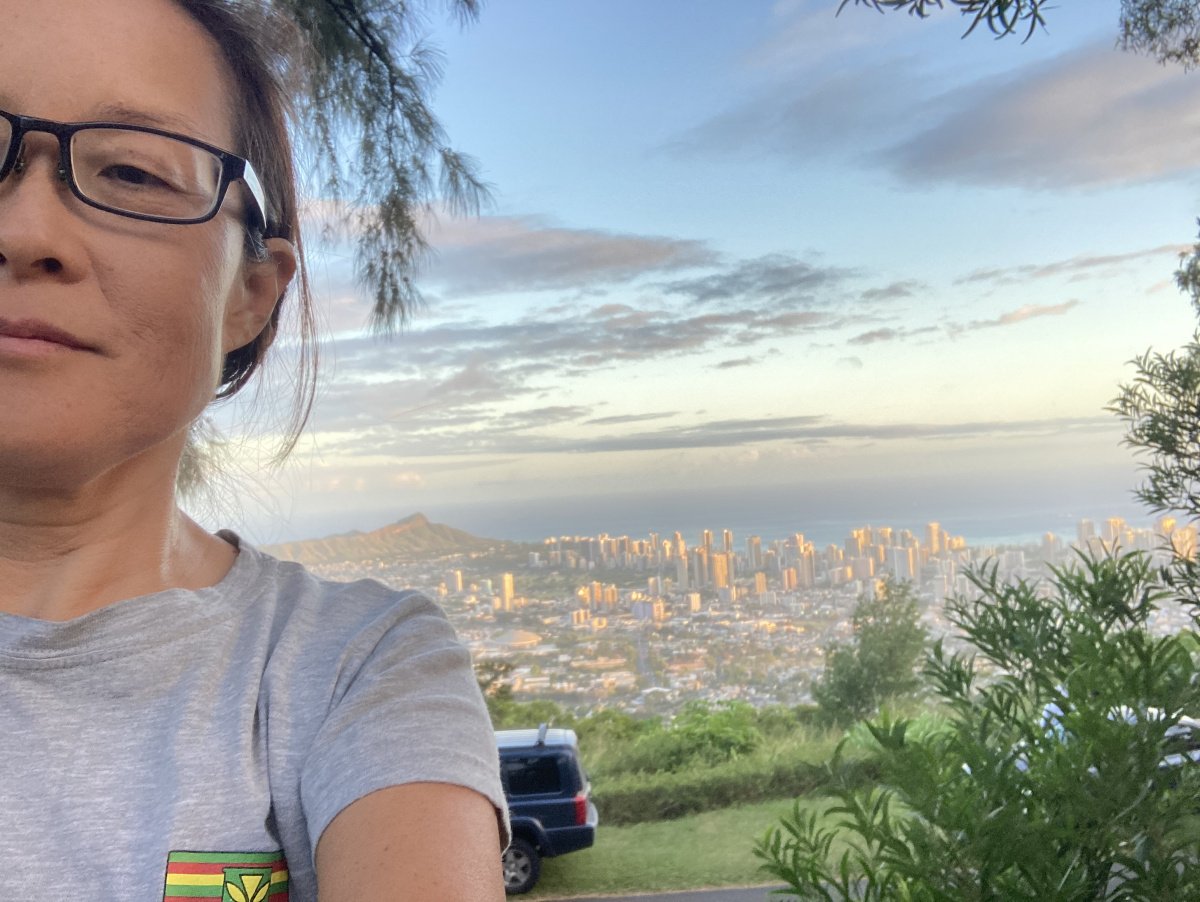
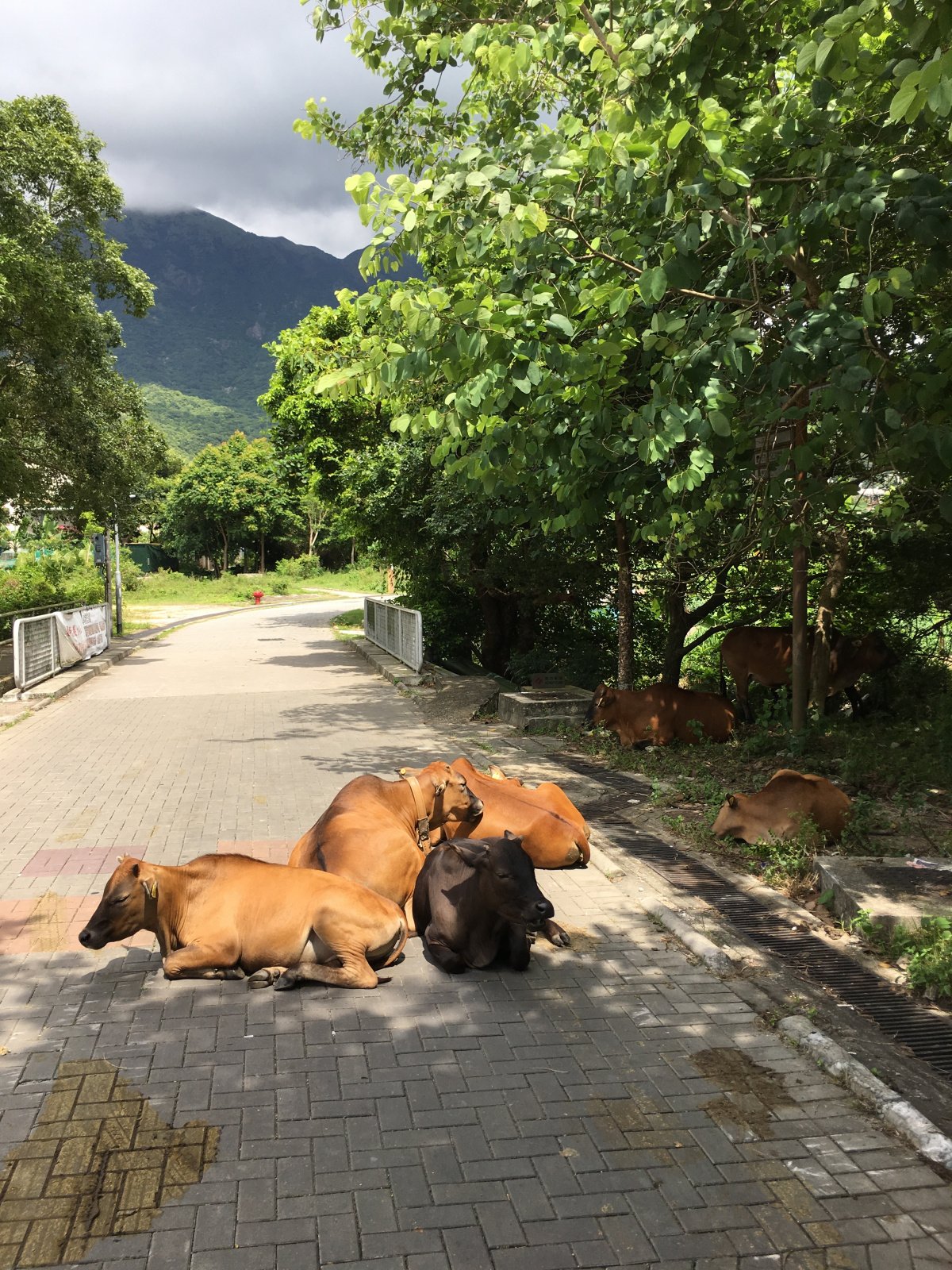
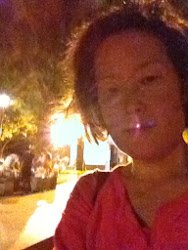 I began writing what would become “Passing in the Middle Kingdom”, an unpublished poetry manuscript I started the summer of 2008 when I moved to Mui Wo, Lantau, Hong Kong from Los Angeles. The manuscript was a finalist for the Wilder Prize and most of the pieces have been published in various drafts. It is a very clear document of the collapse of my marriage, the longing for clarity, the fatigue and joy of early motherhood, and the desire for home and belonging.
I began writing what would become “Passing in the Middle Kingdom”, an unpublished poetry manuscript I started the summer of 2008 when I moved to Mui Wo, Lantau, Hong Kong from Los Angeles. The manuscript was a finalist for the Wilder Prize and most of the pieces have been published in various drafts. It is a very clear document of the collapse of my marriage, the longing for clarity, the fatigue and joy of early motherhood, and the desire for home and belonging.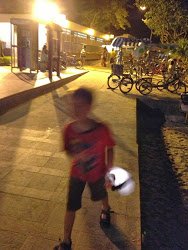
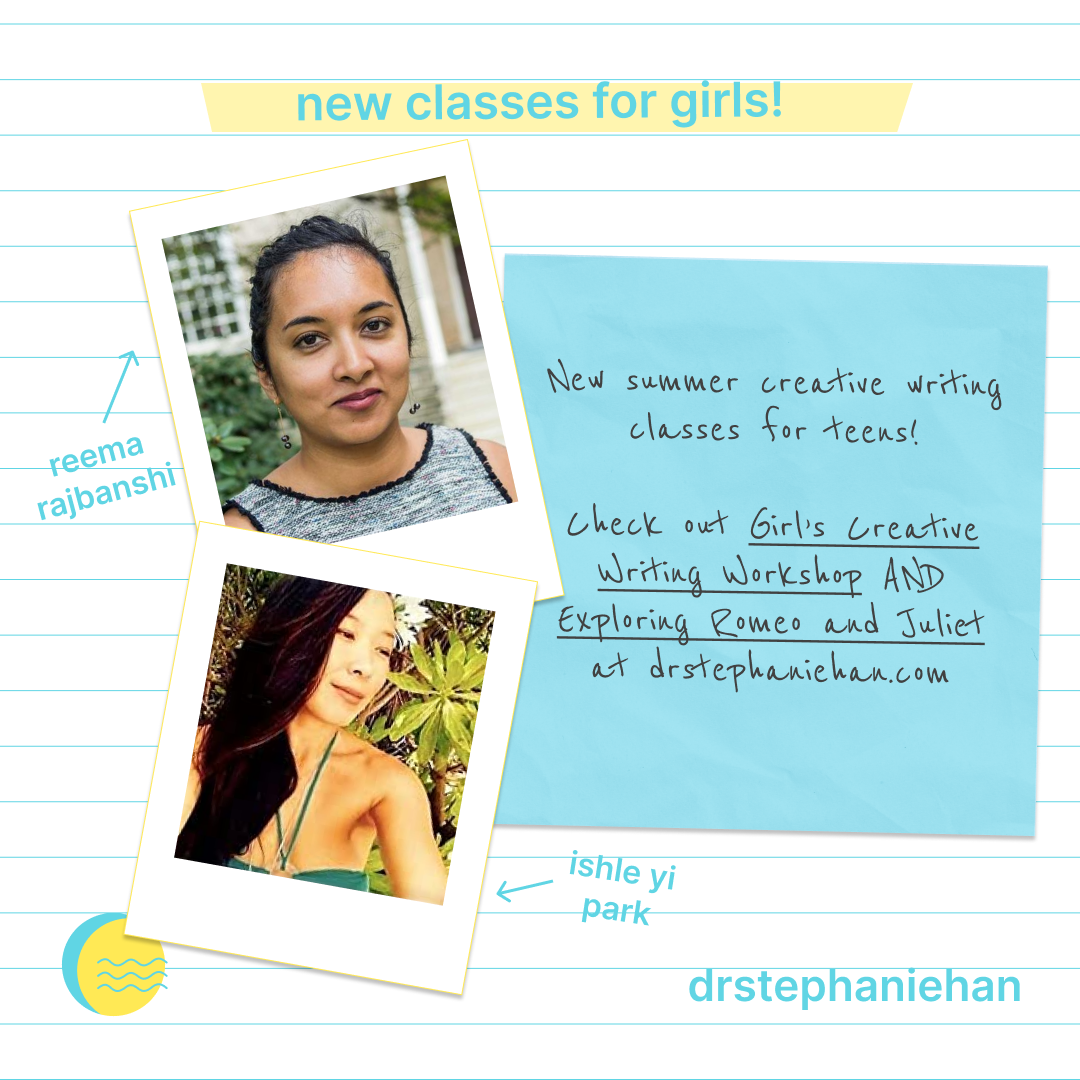
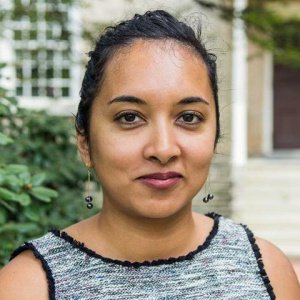
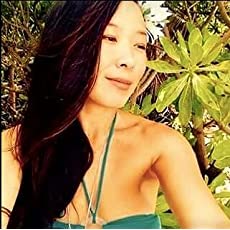


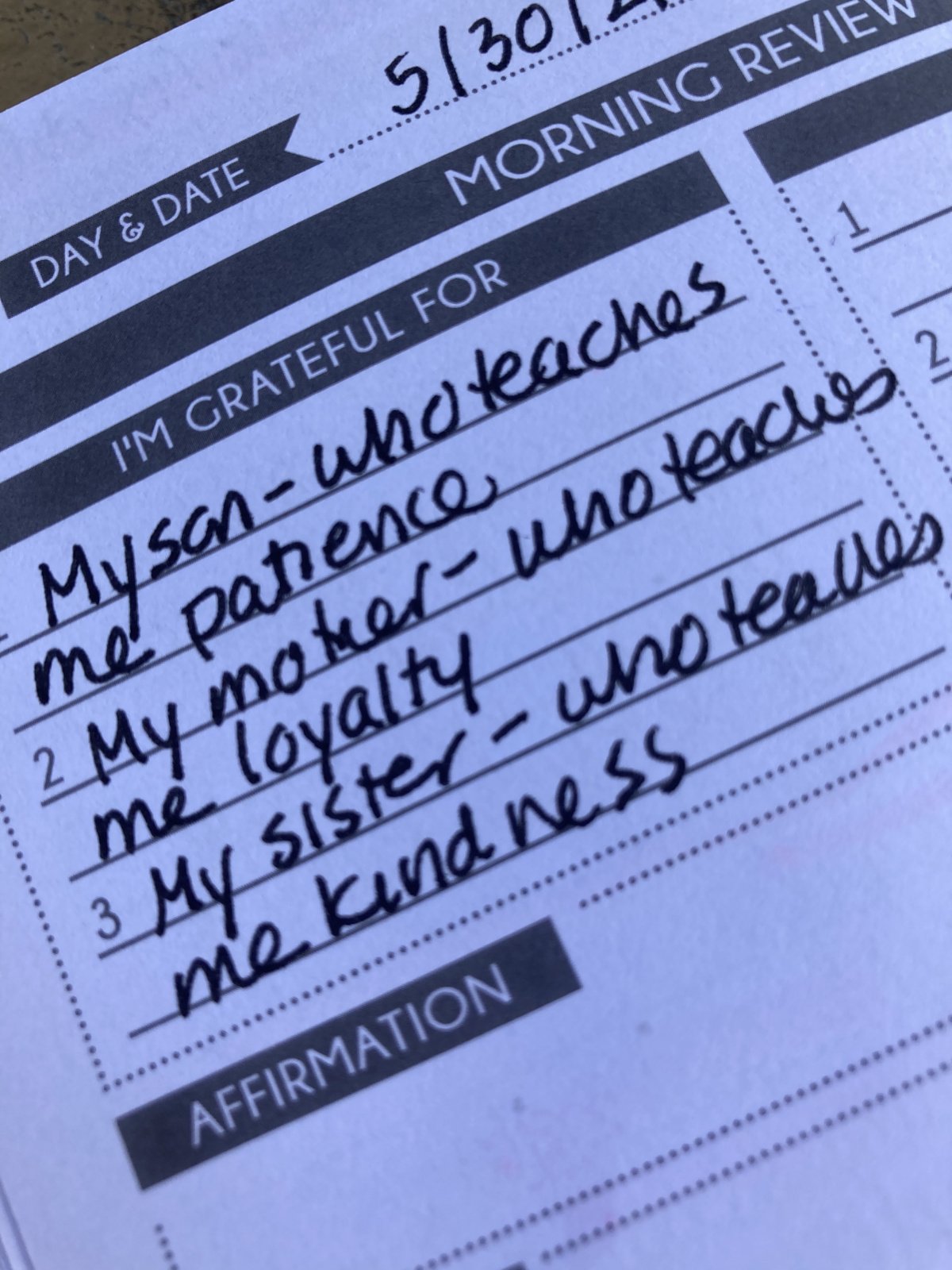
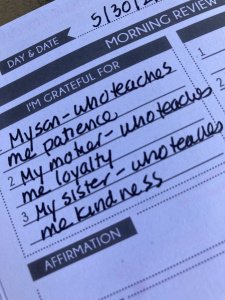 I don’t always fill out the ole Panda Journal, but I like to kick off my day with a bit of thinking about the good stuff. I got these Panda journals for myself and The Kid. For a minute we both did them. I’d say, “Hey, let’s Panda this morning.” But now, alas, it’s just me. Anyway, I realize I had done self-talk like this on and off during my life. But what divorce taught me was that there’s a lot to be grateful for. I will always remember the ways that people helped out and remain very grateful for this.
I don’t always fill out the ole Panda Journal, but I like to kick off my day with a bit of thinking about the good stuff. I got these Panda journals for myself and The Kid. For a minute we both did them. I’d say, “Hey, let’s Panda this morning.” But now, alas, it’s just me. Anyway, I realize I had done self-talk like this on and off during my life. But what divorce taught me was that there’s a lot to be grateful for. I will always remember the ways that people helped out and remain very grateful for this.